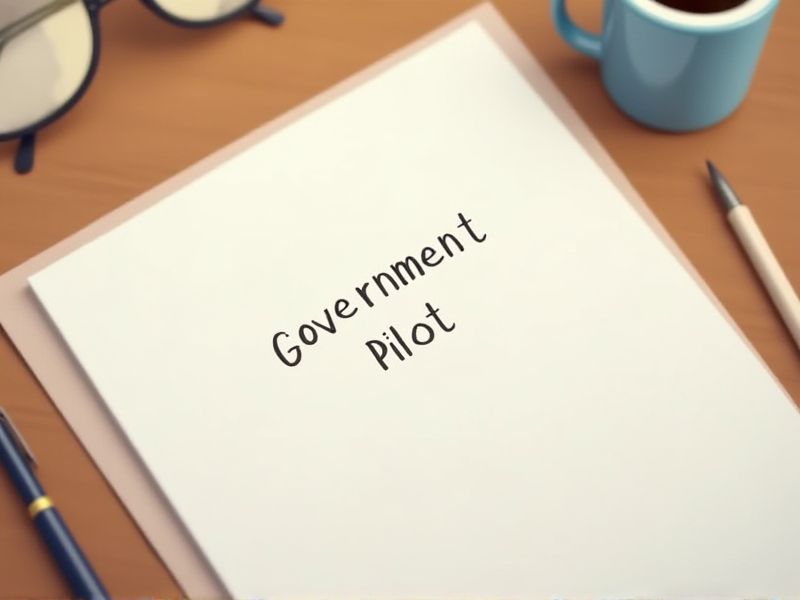
Government pilots operate under stringent regulations to ensure safety and security in the skies. Certification is essential because it verifies a pilot's proficiency in handling complex aircraft and navigating challenging environments. These qualifications help mitigate risks, ensuring that pilots are equipped to make critical decisions under pressure. Here are some essential certifications required for government pilots.
Airline Transport Pilot License (ATPL)
Possessing an Airline Transport Pilot License (ATPL) ensures a government pilot has the highest level of training and experience, meeting stringent safety standards. An ATPL indicates comprehensive knowledge of aviation regulations and advanced flight skills, critical for operating complex government aircraft. It certifies the pilot's competency in managing multi-crew operations, vital for government missions requiring coordinated team efforts. The license also signals a commitment to continuous learning, essential for adapting to evolving aviation technology and protocols in government service.
Commercial Pilot License (CPL)
A Commercial Pilot License (CPL) is crucial for government pilots as it certifies their ability to operate aircraft safely under various conditions. Without a CPL, pilots cannot legally engage in flying aircraft for government missions, which often require advanced skills. It also ensures pilots have met rigorous training standards necessary for handling sensitive operations. Holding a CPL enhances a pilot's credibility and opportunities within government aviation sectors.
Instrument Rating (IR)
Instrument Rating (IR) enables government pilots to operate aircraft in various weather conditions, ensuring mission success regardless of visibility. Proficiency in IR allows pilots to respond effectively in emergency situations that require flying solely by instruments. Government aviation missions often include search and rescue operations or security patrols, demanding precise instrument navigation skills. Regulatory compliance mandates that government pilots possess IR to meet safety and operational standards.
Multi-Engine Rating (MER)
Obtaining a Multi-Engine Rating (MER) allows government pilots to operate a broader range of aircraft, crucial for diverse missions that require different capabilities. Multi-engine aircraft often provide greater power, speed, and range, which are essential for tasks like search and rescue, emergency response, and transportation of personnel or equipment. Many governmental agencies possess multi-engine fleets, necessitating pilots to hold this rating for operational flexibility and efficiency. Regulatory agencies frequently mandate MER for pilots to ensure safety and competency in handling more complex, multi-engine systems.
Type Rating Certification
Type Rating Certification is required for government pilots because it ensures pilots are proficient in operating specific aircraft models. Rigorous training and testing associated with the certification reduce the risk of accidents and enhance safety. Different aircraft have unique systems and handling characteristics, necessitating specialized knowledge. Regulatory compliance mandates that government pilots possess the certification to ensure standardization across operations.
FAA Class 1 Medical Certificate
The FAA Class 1 Medical Certificate is required for government pilots because it ensures their physical fitness to handle the demands of high-stress environments. This certification confirms their vision, hearing, and overall health meet rigorous standards for operational safety. It also allows them to comply with federal regulations, maintaining the integrity of national aviation safety protocols. Without this certification, a government pilot would not be authorized to operate an aircraft, which could lead to mission and security risks.
Certified Flight Instructor (CFI) Certification
Certified Flight Instructor (CFI) Certification is required for government pilots to ensure a high standard of training proficiency and safety. The certification enables pilots to instruct and mentor other pilots within government agencies, fostering a culture of continuous learning and expertise. Government pilots with CFI certification can enhance their own skills through teaching, an approach supported by educational psychology principles. The structured knowledge and instructional skills gained through CFI certification contribute to maintaining rigorous aviation standards in government operations.
Crew Resource Management (CRM) Training Certification
Government pilots operate in complex environments that require efficient decision-making and teamwork. CRM training certification enhances communication and coordination among crew members, reducing the likelihood of human error. This training empowers pilots with strategies to manage workload and handle stressful situations, leading to improved safety and operational efficiency. Regulatory bodies often mandate CRM training to ensure standardization and adherence to safety protocols in government aviation operations.
Aviation Safety Management System (SMS) Training Certification
Government pilots require Aviation Safety Management System (SMS) training certification to ensure adherence to regulatory standards aimed at minimizing risks. Acquiring this certification provides pilots with comprehensive knowledge on identifying and mitigating potential hazards during flight operations. It enhances the ability to systematically manage safety-related processes and decision-making. This training is crucial for maintaining public trust and achieving high safety benchmarks in government aviation missions.
Government Security Clearance Training Certification
Government pilots handle sensitive and classified information related to national security; therefore, security clearance training ensures they understand how to protect this data. Without proper training, there's a risk of sensitive information being mishandled, which can compromise national defense operations. Pilots often operate in restricted areas that require a verified clearance level to ensure all operations are conducted legally and securely. Security clearance certification acts as a vetting process to maintain trust and integrity within government aviation sectors.
Summary
You can expect enhanced reliability when a government pilot obtains certifications, as certifications often signify a proficiency in skills and knowledge. With certified pilots, governments may experience a higher level of trust and credibility in their aviation operations. Certified pilots can also improve safety standards, reducing the likelihood of errors and accidents. These qualifications might potentially streamline processes and boost overall efficiency in government aviation endeavors.
